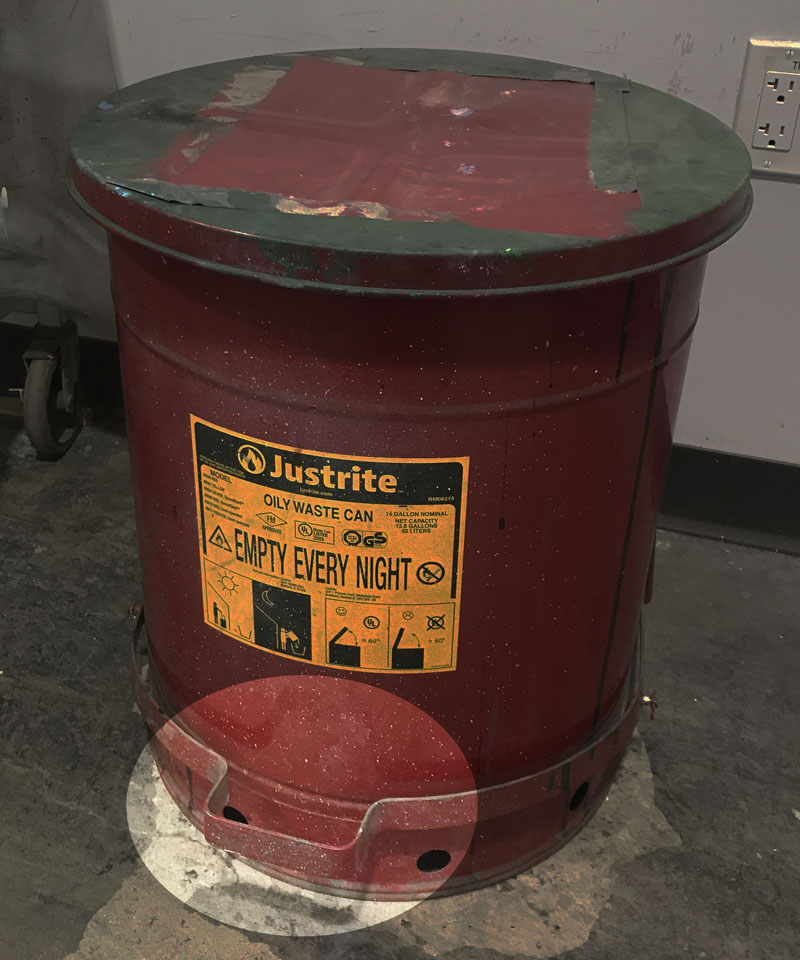Style guide: Difference between revisions
From Artisans Asylum Wiki
(Created page with "# Style guide 0. Be friendly 1. Use simple words 2. Define necessary jargon 3. Annotate images 4. Link to manuals 5. No walls of text (structure your content) 6. Active voice over passive 7. Keep it short and sweet") |
Acharlwood (talk | contribs) mNo edit summary |
||
| (13 intermediate revisions by 2 users not shown) | |||
| Line 1: | Line 1: | ||
;0. Be friendly | |||
:Please write your articles in a friendly tone reflective of our welcoming community. | |||
1. Use simple words | |||
2. Define necessary jargon | ;1. Use simple words | ||
3. Annotate images | |||
4. Link to manuals | :No need to use big words when simples ones will do. | ||
5. No walls of text (structure your content) | |||
6. Active voice over passive | ;2. Define necessary jargon | ||
7. Keep | |||
:In some cases, you will need to use jargon (technical terms). If you are introducing jargon, please make sure to define it. | |||
;3. Annotate images | |||
[[File:highlighted_image_example.jpg|thumb|250px|Step on the foot pedal (highlighted above) to open the lid]] | |||
:While images are worth a thousand words, they can be made much more accessible with some light editing. Make judicious use of arrows, boxes, text, or highlights to make your instructions crystal clear. | |||
;4. Link to manuals | |||
:Rather than including full instructions in this wiki, link out to manuals so that interested users may refer to them. Most readers will only be interest in basic instructions. | |||
;5. No walls of text (structure your content) | |||
:Walls of text are super intimidating. Structure your content by splitting text into shorter paragraphs and make use of headings or other formatting (e.g. lists) to organize articles. | |||
;6. Active voice over passive | |||
: The active voice is simpler, more concise, and easier for the reader. | |||
: If you'd like to learn more, [https://www.youtube.com/watch?v=W1_IRU6zx9g here's a video overview] and [https://www.grammarly.com/blog/active-vs-passive-voice/ a more comprehensive article]. | |||
;7. Write for your audience | |||
:Consider your primary audience when writing any content. Who will be reading this article? What knowledge will they already have, and what are concepts you will need to briefly explain? | |||
: [https://www.youtube.com/watch?v=xyH79KQET5E Here's more on writing for your audience] and why this matters. | |||
;8. Be concise. | |||
: When writing about tasks, write about the best way to do something, not every possible way to do something. Keep explanations simple, straightforward, and clear. | |||
[[Category:A2 Wiki Help]] | |||
Latest revision as of 13:28, 9 February 2024
- 0. Be friendly
- Please write your articles in a friendly tone reflective of our welcoming community.
- 1. Use simple words
- No need to use big words when simples ones will do.
- 2. Define necessary jargon
- In some cases, you will need to use jargon (technical terms). If you are introducing jargon, please make sure to define it.
- 3. Annotate images
- While images are worth a thousand words, they can be made much more accessible with some light editing. Make judicious use of arrows, boxes, text, or highlights to make your instructions crystal clear.
- 4. Link to manuals
- Rather than including full instructions in this wiki, link out to manuals so that interested users may refer to them. Most readers will only be interest in basic instructions.
- 5. No walls of text (structure your content)
- Walls of text are super intimidating. Structure your content by splitting text into shorter paragraphs and make use of headings or other formatting (e.g. lists) to organize articles.
- 6. Active voice over passive
- The active voice is simpler, more concise, and easier for the reader.
- If you'd like to learn more, here's a video overview and a more comprehensive article.
- 7. Write for your audience
- Consider your primary audience when writing any content. Who will be reading this article? What knowledge will they already have, and what are concepts you will need to briefly explain?
- Here's more on writing for your audience and why this matters.
- 8. Be concise.
- When writing about tasks, write about the best way to do something, not every possible way to do something. Keep explanations simple, straightforward, and clear.
